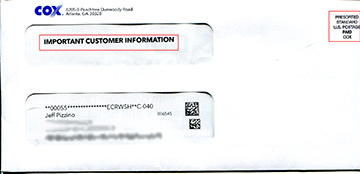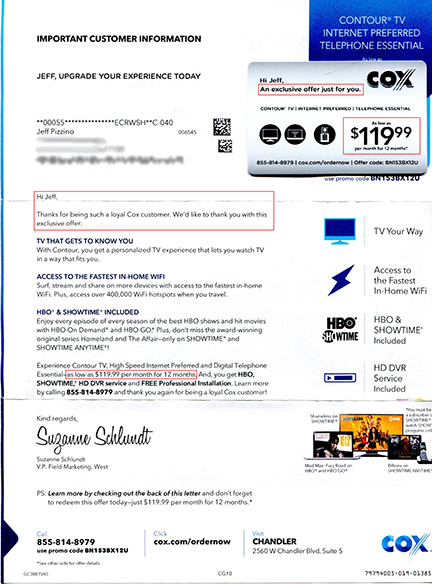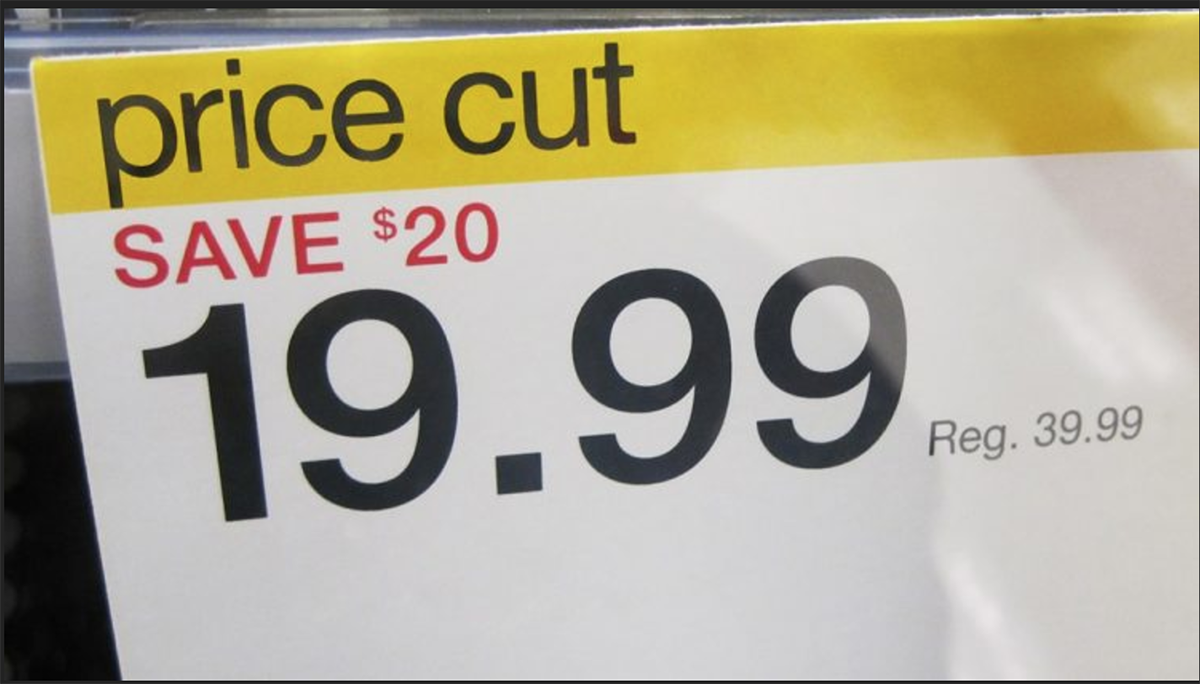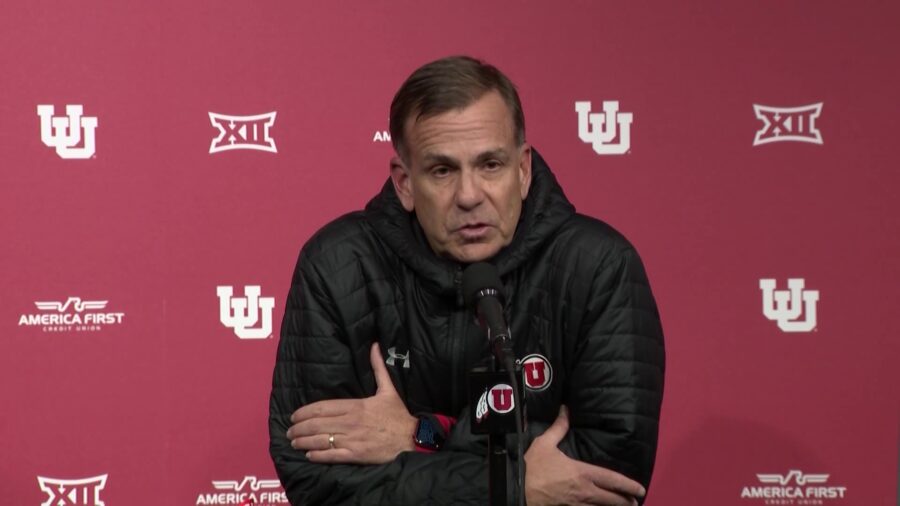
There’s a knock on my door. It’s a salesman from a window company.
“Hi, I’m [so-and-so] with [some window company]. We just happen to be working in your neighborhood today and wondered if you thought about upgrading your windows,” he says.
“Have you thought about upgrading your honesty?” I think to myself.
So in other words, this salesman’s car just randomly drove itself to my neighborhood?

Speaking of windows, it’s been said, “the eyes are the window to the soul.” One of my clients, Converus, has a new lie detection technology called “EyeDetect” that actually monitors eye behavior to detect deception. (It’s way cool, and newsworthy.) I wish I had an EyeDetect station set up at my home so that I could have salespeople like this sit down and state it’s “true” they just “happen to be in my neighborhood” — all while the high-speed infrared eye tracker takes up to 60 photos of their eyes per second.
Another big sales lie is the same direct mail offer I received from my phone and Internet vendor, Cox Communications, every few weeks selling me either their cable TV service or now their “Contour” TV experience.

Through the window of the envelope screams the headline, “IMPORTANT CUSTOMER INFORMATION.” That’s a lie. This is not important customer information at all. You’re trying to get me to spend more money with you. Plus, the letter is sent stamped, “Presorted standard U.S. Postage Paid Cox.” Oh, it’s such important customer information that you sent it the cheapest way possible?
The letter begins, “Hi Jeff, Thanks for being such a loyal Cox customer. We’d like to thank you with this exclusive offer.” What? You’re thanking me by asking me to give you more money? Absurd. And another lie is I’m receiving an “exclusive” offer. I’m sure every Cox customer in your database without Cox TV service received this offer. Wow, that’s a bit of a stretch to the definition of “exclusive.”
There’s also blatant deception (or trickery) going on with this communication. This exclusive offer of “Contour TV, High Speed Internet Preferred and Digital Telephone Essential—as low as $119.99 per month for 12 months” has two issues. Number one, you have to turn the letter over and read the tiny four-point type at the bottom to read, “Regular rates apply after respective promo periods…” What are the “regular rates?” The fine print doesn’t say. And that’s another thing — why is it called “fine print?” There’s nothing “fine” about it. It should be called, “where-we-hide-the-nasty-things-about-our-offer print.”

The other issue I have is the price: $119.99. See those three 9s there? That makes it look SO much less expensive than $120, doesn’t it!? I’ve always despised the use of 9s in advertising, but almost everyone uses it. (Is it because of Lennon’s Beatles song from The White Album?) When I’m speaking to a salesperson in a store or wherever, and he/she says, “This is only $19.99,” I always respond, “So, it’s $20?” Sometimes we get in an argument. It’s delightful and worth every penny.
Lastly is the telemarketing phone call. I seldom answer my home phone anymore because the percent of unsolicited calls is now so high. But I happened to answer one the other day. I could clearly here the buzz of others in the call center in the background. I kindly explained we’re on a no-call list, and the telemarketer actually said to me, “This is not a telemarketing call.” I was almost speechless. I don’t remember what he was selling, except he wanted someone to stop by my house and discuss how I can save on my utility bill. OK, this person is just going to have a friendly discussion with me and not ask me to buy anything? Right.
These forms of deception are ridiculous. They hurt trust and credibility. They’re bad public relations because they damage a company’s image.
The best communications are AUTHENTIC (honest, genuine, straightforward and spin-free). Don’t try to trick me into buying your product or services. Communicate your story with transparency. Be genuine. Be authentic. If you can’t pass an EyeDetect test, I don’t want it.
Jeff Pizzino, APR (Accredited in Public Relations), is the Chief Authentic Officer of AuthenticityPR. He’s worked in public relations since graduating from BYU with a Communications degree in 1987. He also holds an MBA. Jeff brands himself as a “spin-free, PR purist” and exclaims he’s on a never-ending crusade to give PR… good PR. His PR firm specializes in improving an organization’s performance and profitability by telling its story with clarity, impact and authenticity. He does so via a myriad of communications tools, including news releases, social media, blogging, website content, video and more. If you want to learn more about customer-centric practices, authenticity and simply “doing the right thing” at all times, stalk Jeff on X: @PRjeff

